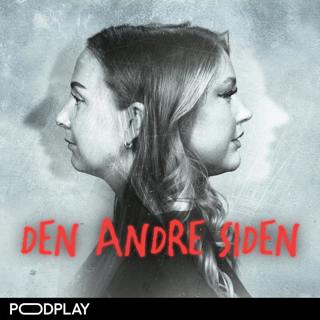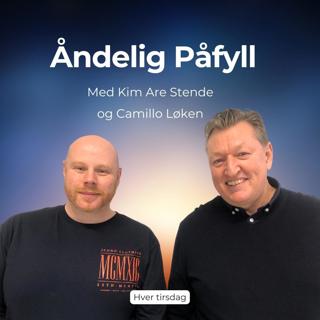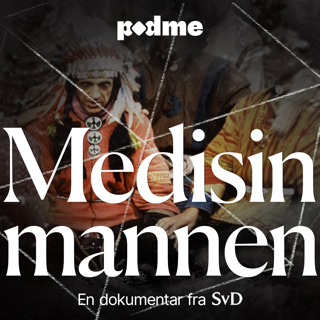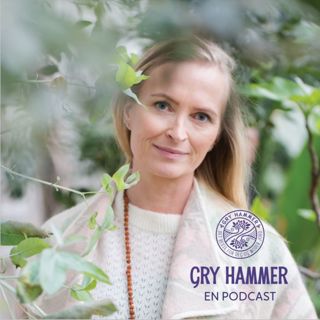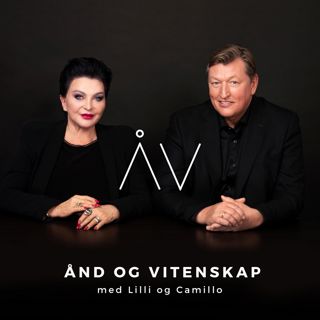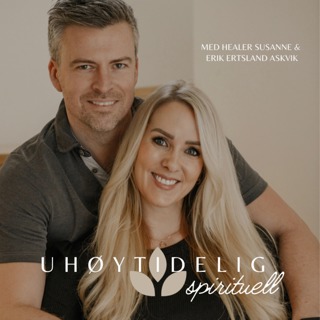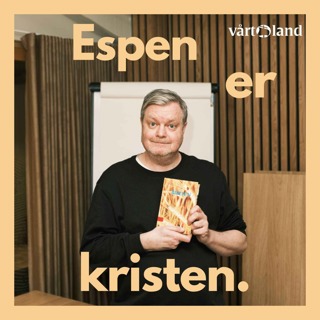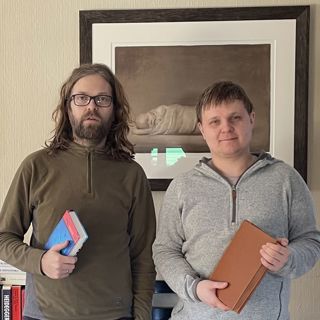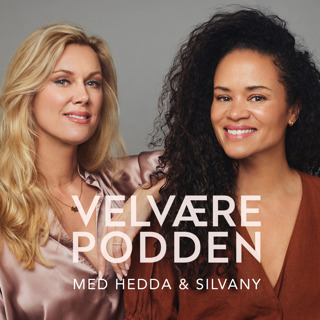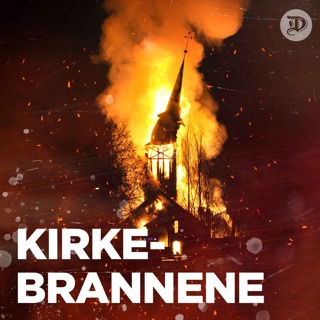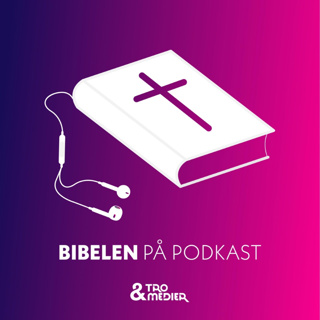![Rabbi Jeremy Wieder: Is There a Torah Approach to our Social Responsibility? [Social Justice 1/3]](https://cdn.podme.com/podcast-images/D79089FBEF78B78B9B1A2A8AFD27F6A1_small.jpg)
Rabbi Jeremy Wieder: Is There a Torah Approach to our Social Responsibility? [Social Justice 1/3]
In this episode of the 18Forty Podcast, we sit down with Rabbi Jeremy Wieder – rosh yeshiva, PhD, Bible professor, and passionate Orthodox moral voice – to discuss what the Torah has to say about social justice. The Torah serves as a moral guidebook for many, with some citing the avos as exemplifying generosity, even towards those they didn’t know. One might therefore expect that those most engrossed in Torah learning would fight on the front lines for social justice issues, but many make the opposite association. It seems that there may be more to morality than studying Halakhah alone. -What kind of morality does Halakhah espouse?-Why is the Beit Midrash not typically associated with social justice if the Torah is our moral guidebook?-Is Halakhah the only element to the picture the Torah paints of morality, or is there more?-And as Halakhah is mostly immutable, to what degree, and in what fashion, can the Torah evolve in response to the times?Tune in to hear Rabbi Jeremy Wieder share his ideas about the Torah’s view on social justice.References:Rabbi Jonathan Sacks interview with Tim Ferriss - https://tim.blog/2020/08/26/rabbi-lord-jonathan-sacks-2/Rabbi Sacks interviews with David Bashevkin - https://ncsy.org/remembering-rabbi-sacks/To Heal a Fractured World by Rabbi SacksSocial Vision by Philip WexlerThere Shall Be No Needy by Rabbi Jill Jacobs For more, visit https://18forty.org/socialjustice/#wieder.Become a supporter of this podcast: https://www.spreaker.com/podcast/18forty-podcast--4344730/support.
22 Des 20201h 18min
![Rabbi Meir Triebitz: How Should We Approach the Science of the Torah? [Science 4/4]](https://cdn.podme.com/podcast-images/D79089FBEF78B78B9B1A2A8AFD27F6A1_small.jpg)
Rabbi Meir Triebitz: How Should We Approach the Science of the Torah? [Science 4/4]
In this episode of the 18Forty Podcast, we sit down with Rabbi Meir Triebitz – Rosh Yeshiva, PhD, and expert on matters of science and the Torah – to discuss what kind of science we can learn from the Torah. The Torah, and especially the Talmud, addresses a wide subject matter including theology, morality, metaphysics, and science. It is sometimes said to contain all knowledge – meaning that we could learn anything from the Torah, which seems to imply that all of the Torah’s scientific claims are true. Some welcome this perspective, while others object to it. -What is the Torah’s subject matter?-Does it contain irreconcilable scientific claims?-Should a statement’s subject matter change how we interpret it?-What if we aren’t supposed to interpret a statement as scientifically true, but our Halakhah today is in some way predicated on the statement being true?-And does our not interpreting a statement literally mean it isn’t true, or just that we can’t understand it?Tune in to hear Rabbi Meir Triebitz discuss his perspective on these age-old science and Torah questions. For more, visit https://18forty.org/science/#triebitz.Become a supporter of this podcast: https://www.spreaker.com/podcast/18forty-podcast--4344730/support.
8 Des 202054min
![Rabbi David Fohrman: Does the Torah Teach Science? [Science 3/4]](https://cdn.podme.com/podcast-images/D79089FBEF78B78B9B1A2A8AFD27F6A1_small.jpg)
Rabbi David Fohrman: Does the Torah Teach Science? [Science 3/4]
In this episode of the 18Forty Podcast, we sit down with Rabbi David Fohrman - author, lecturer, and founder of the Aleph Beta Academy - to discuss in what genre the Torah is meant to be, and how that should influence the way we think about it. There are many approaches one could take when confronted with science that seem to contradict parts of the Torah. Some, including Nathan Aviezer, orchestrate elaborate readings of the beginning of Bereishis in accordance with Biblical concordism. Some, like Natan Slifkin, feel comfortable reading the pesukim metaphorically, feeling less need to provide literal reconciliations. Rabbi David Fohrman feels that many people could benefit from thinking more about how the Torah and science coexist, particularly the words of the first few chapters in Bereishis. - In what genre is the Torah?- How should we treat its content?- Does it ever try to teach us empirical facts about the world, or is it trying to give perspective on life?- What other kinds of patterns should we look for in the Torah?Tune in to hear Rabbi David Fohrman discuss the many ways in which we could think about the pesukim in the Torah. For more, visit https://18forty.org/science/#fohrman.Become a supporter of this podcast: https://www.spreaker.com/podcast/18forty-podcast--4344730/support.
1 Des 20201h 15min
![Professor Allison Coudert: How did Religion Influence Science? [Science 2/4]](https://cdn.podme.com/podcast-images/D79089FBEF78B78B9B1A2A8AFD27F6A1_small.jpg)
Professor Allison Coudert: How did Religion Influence Science? [Science 2/4]
In this episode of the 18Forty Podcast, we sit down with Professor Allison Coudert, of the Department of Religious Studies at UC Davis, to discuss the historical interplay of science with religion, and specifically with Kabbalah. During a 1917 lecture talking about the rational mindset underlying science, Max Weber famously declared that “This means that the world is disenchanted.” Though this sentiment has permeated the public consciousness, Allison thinks the real story is more complicated. She thinks that science and enlightenment philosophy only heightened the magic we humans could experience, and that enlightenment movements have done so historically. In her mind, religion and science aren’t opponents, as they’re so often framed, but engage in a mutually-beneficial relationship, each inspiring and strengthening the other. - What has the historical interplay of science and religion been?- What influence has Kabbalah specifically had on scientists’ thought?- What connotations do the words “modernity” and “enlightenment” tend to evoke in listeners?- And are these evocations justified?Tune in to hear Allison Coudert discuss the influence that Jewish thought has had since the Scientific Revolution. For more, visit https://18forty.org/science/#coudert.Become a supporter of this podcast: https://www.spreaker.com/podcast/18forty-podcast--4344730/support.
24 Nov 202059min
![Dr. Jeremy England: What Does a Scientist See in the Torah? [Science 1/4]](https://cdn.podme.com/podcast-images/D79089FBEF78B78B9B1A2A8AFD27F6A1_small.jpg)
Dr. Jeremy England: What Does a Scientist See in the Torah? [Science 1/4]
In this episode of the 18Forty Podcast, we sit down with Dr. Jeremy England, physicist and biologist, to discuss his lives as a Jew and an academic, and how, if at all, those lives interact. Jeremy grew up a barely-affiliated Jew and obtained a degree in biochemistry from Harvard, but discovered his love for Judaism and began reading authors like Rabbi Jonathan Sacks and Ruth Weiss. He is an accomplished scientist, having posited the theory of dissipative adaptation to explain abiogenesis, but still sees a depth and meaning to the words of the Torah. Though science plays an important role in his life, he feels that has managed to find a role for Torah despite this fact without compromising on the ideals of either. - What are the abilities and limitations of science?- What are the abilities and limitations of Torah?- As a scientist, how did Jeremy reconcile the two as he became more religious?- How does the study of each compare to the other?- And what role should they ultimately play in one’s life?Tune in to hear Jeremy England discuss his theory of abiogenesis and of living an intellectually complete life. For more, visit https://18forty.org/science/#england.Become a supporter of this podcast: https://www.spreaker.com/podcast/18forty-podcast--4344730/support.
17 Nov 20201h 49min
![Rav Moshe Weinberger: Can Mysticism Become a Community? [Mysticism 3/3]](https://cdn.podme.com/podcast-images/D79089FBEF78B78B9B1A2A8AFD27F6A1_small.jpg)
Rav Moshe Weinberger: Can Mysticism Become a Community? [Mysticism 3/3]
In this episode of the 18Forty Podcast, we sit down with Rav Moshe Weinberger, rabbi and educator, to discuss the role of mysticism in modern-day Judaism. Rav Weinberger grew up Modern Orthodox and became attracted to Chassidus at a young age. Though he is a fan of the yeshiva system and believes that Halakha cannot be compromised, he has long watched with anguish as countless products of the system have been turned off by the dry, inhumane version of Yiddishkeit taught to them. Rav Weinberger believes that Jewish education must evolve over time, and that Chassidus is as good an approach as any for the current generation. -How can one go about strengthening their connection to Hashem?-What are the educational challenges of today’s generation?-Where does the modern-day yeshiva system succeed, and where does it fail its students?-And how can we attempt to tweak the system to suit everyone’s needs?Tune in to hear Rav Moshe Weinberger discuss the challenges that he sees facing today’s generation of young Jews. For more, visit https://18forty.org/mysticism/#weinberger.Become a supporter of this podcast: https://www.spreaker.com/podcast/18forty-podcast--4344730/support.
3 Nov 20201h 12min
![Dr. Ora Wiskind: How do you Read a Mystical Text? [Mysticism 2/3]](https://cdn.podme.com/podcast-images/D79089FBEF78B78B9B1A2A8AFD27F6A1_small.jpg)
Dr. Ora Wiskind: How do you Read a Mystical Text? [Mysticism 2/3]
In this episode of the 18Forty Podcast, we sit down with Dr. Ora Wiskind, professor and author, to discuss her life journey, both as a Jew and as an academic, and her attitude towards mysticism.Ora grew up in a Reform family in Ohio, receiving a top-notch secular education but a minimal Jewish one. After studying in France and Germany she found herself in Israel, eventually becoming Orthodox despite her rebellious nature. With her background in literature, she has contributed unique, hermeneutic perspectives on some Hasidic masters, like Rebbe Nachman of Breslov, and continues to break new ground with her scholarship on mysticism.-What are mysticism and rationalism, and what are the appeals of both mindsets?-How did someone with Ora’s background end up writing about the mystical works of Rebbe Nachman?-How has her background in literature influenced her writings?-How does she approach her work as a religious academic, where she must stay objective about the content she studies despite it giving her religious inspiration?-And how has being an Orthodox woman shaped her career?Tune in to hear Ora Wiskind discuss mysticism in the modern world and its relation to her academic work.For more, visit https://18forty.org/mysticism/#wiskind.Become a supporter of this podcast: https://www.spreaker.com/podcast/18forty-podcast--4344730/support.
27 Okt 20201h 5min
![Joey Rosenfeld: Can Mysticism Heal Us? [Mysticism 1/3]](https://cdn.podme.com/podcast-images/D79089FBEF78B78B9B1A2A8AFD27F6A1_small.jpg)
Joey Rosenfeld: Can Mysticism Heal Us? [Mysticism 1/3]
In this episode of the 18Forty Podcast, we sit down with Joey Rosenfeld, social worker and kabbalist, to talk about the differences between mysticism and rationalism and the roles they should play in our lives. Mysticism is often misunderstood and dismissed by rationalists without much thought, but what is mysticism? One might define it by what it’s not: reductionism, which combined with complexity is science. But what if we saw things as their whole instead of their constituent parts? Maybe we’re limiting ourselves by reducing the big picture to a list of atomic components; maybe seeing the unfiltered unity in all things would be freeing. Joey Rosenfeld began to learn Kabbalah in depth in yeshiva, when he was supposed to be dedicating his time to Talmud, and found its ideas to be profoundly life-changing. He does not fit the stereotype of the secluded, white-bearded mystic, as he is a social worker and addiction counselor. As someone with a unique window into people’s vulnerabilities, Joey sees deep connections between Kabbalah and psychology, particularly in the theory behind Alcoholics Anonymous, which drew from the work of Carl Jung. -What are the differences between rationalism and mysticism?-Are they compatible or incompatible?-What approach should people take when learning Kabbalah?-Are there parallels between mysticism and therapy?-And how is or isn’t mysticism suited for a modern audience?Tune in to hear Joey discuss the role that mysticism plays in his life, and how one can find peace in transcending rationality. For more, visit https://18forty.org/mysticism/#rosenfeld.Become a supporter of this podcast: https://www.spreaker.com/podcast/18forty-podcast--4344730/support.
20 Okt 20201h 24min





